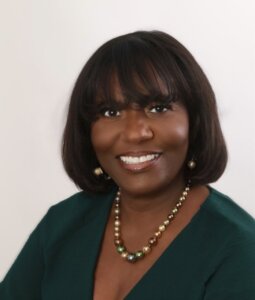Beyoncé already “runs the world” of pop music and now she’s set to take over the country music genre too with her Friday album release. But not everyone’s welcoming her decision to saddle up.
The Texas native released the second part to her “Renaissance” trilogy on Friday. It’s a full country album titled “Act II: Cowboy Carter” — the middle act follows her first house/dance hall album and precedes her yet-to-be-announced Act III, which is rumored to be a rock album.
The first two singles from Cowboy Carter dropped the same night as the Super Bowl, after she teased new music in an ad with Verizon and “Arrested Development’s” Tony Hale.
Just a week later, she made history as the first Black woman to have a No. 1 song on the Billboard Hot Country Songs chart. In the eight decades Billboard has had country radio charts, only seven other Black female artists have achieved placement on them.
How country music became Black and white

Dwandalyn Reece, associate director for the humanities and curator of music at the Smithsonian Institution’s National Museum of African American History and Culture in D.C. (Courtesy Reece)
Some country fans, including “Dukes of Hazzard” actor John Schneider, have voiced their criticism toward Beyoncé’s foray into the country genre, claiming she’s trying out the new sound without any personal reference to the music and simply taking this lane change as an avenue to make money.
But Dwandalyn Reece, associate director for the humanities and curator of music at the Smithsonian Institution’s National Museum of African American History and Culture in D.C., said Black artists and their influence have been a part of the country genre for decades.
“I think country music, like most American music, is a mixture and a combination of a variety of influences. No one can point to who did what first,” Reece said. “But country music is definitively a combination of African American aesthetic traditions as well as Anglo-American traditions that came over from Europe.”
So can a Black pop artist claim their venture into the genre is a “reclamation of their roots?”
René Rodgers, head curator of the Birthplace of Country Music Museum in Bristol, Virginia, said the African American community has made an impact on country music historically. She said in pastoral areas of the country, instruments made from vegetables such as gourds became the first versions of banjos and hymnals became the hazy prototypes for lovesick ballads.
“The music that we think of as ‘old-time music,’ traditional music that became country music, was often being played by Black musicians, either free Black musicians or … musicians from the enslaved population,” Rodgers said.
It’s become difficult to define what makes a song country, Reece said, as artists today are challenging the notion of “staying in one lane” by genre-bending and allowing other musical influences to guide their musical decision-making.
“This whole concept of ‘genre,’ we’re really trying to expand and break beyond the box,” Reece added. “That’s what I’m really happy to see a lot of artists today really challenging.”
At the turn of the 20th century, Reece said the music industry separated Black and white audiences by creating “race records” and “hillbilly” music within the country genre, warping “the narrative about what country music was about.”
“The criticism is kind of tied to the whole history of country music and how it is perceived as a white, ‘American’ … tradition, and crossing those racial boundaries,” she said. “I think country music is one genre that still has a strong gatekeeping role, particularly about radio play, and who gets in and who doesn’t. And people are resistant.”
Beyoncé herself shared a similar sentiment in an Instagram post revealing the ultra-Americana cover art for the album: “My hope is that years from now, the mention of an artist’s race, as it relates to releasing genres of music, will be irrelevant.”
Getting this country Barbie out of her box
The first of Cowboy Carter’s singles, “Texas Hold ‘Em,” came with a minute-long teaser paying homage to Wim Wenders’ 1984 film “Paris, Texas,” with a taxi driving through arid land littered with empty Modelo beer bottles and a group of men gawking at a waving billboard promoting the song.
The song starts with a twangy banjo strummed by Grammy-winning folk artist Rhiannon Giddens before shifting into hard drive with a banging kick drum, hooting and hollering backing vocals and the rhythmic metronome of crickets in the background.
To Rodgers, it’s clearly a country song “that’s going to be part of a wider country journey” for Beyoncé.
“What’s also exciting about someone like Beyoncé moving in this direction, or finding a way to express herself through this genre, is that it then draws attention to other artists who have been in the genre for a while, who might not have gotten as much airtime or as much recognition or notice,” said Rodgers.

“I think that any artist can express themselves in any genre, and be a part of that genre. To me, music is about expressing yourself, expressing things that you feel about the world around you. It’s about sharing stories through music,” Rodgers said. “And we should embrace that, because it makes music more interesting.”
The album’s second single, “16 Carriages,” is a slower, more pulsating, guitar-forward ballad reminiscent of “American Honey” by Lady A (formerly known as “Lady Antebellum”) or “River” by Leon Bridges. It’s less of a “traditional” country song but still touches on topics you’d often find in the genre, such as working hard, praying and building a legacy your children can be proud of — even if it’s to the detriment of your health and family.
This isn’t Beyoncé’s first rodeo
Longtime members of the BeyHive have known Beyoncé is no newbie to country music. The Houston-born icon has dipped her toe into the country pond before with “Daddy Lessons” from her 2016 album “Lemonade.” The song touches on topics of learning how to shoot, protecting your family and land, and doing anything in your power to make a better life for your loved ones.
She performed the song with The Chicks (formerly known as “The Dixie Chicks”) at the 50th Country Music Awards — prompting controversy.
Most of the backlash to the performance was due to Beyoncé’s pop and R&B history, with critics claiming that having one country song in her long discography didn’t qualify her to perform.
Country star Travis Tritt was among those who took to Twitter, the platform now known as X, to air his grievances against Queen Bey’s presence at the CMAs: “As I see it, country music has appealed to millions for many years. We can stand on our own and don’t need pop artists on our awards shows,” he wrote in a post from 2016.
Alex Abad-Santos of Vox described the backlash: “Some of their sentiment was due to Beyoncé’s liberal-leaning politics, some of it was rooted in her perceived lack of country cred, and some of it was downright racist.”
Users on social media were already reacting to the backlash, and its historical roots, before the new album was released.





